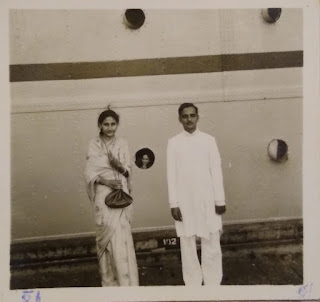Last night I woke up at around 4am with this quote ringing in my ears.
I read this book long ago, during my school days in 1970s. The book made a great impression on me then. About the immensity of time, it's great expanse, our insignificance, and with all of our pomp and glory, our tiny speck of our effort. This quote has been with me since. But, last night, from some deep recess in my mind, some thing triggered this quote during my sleep.
At breakfast shared my approximate memory of the quote with my children.
Found the exact quote from Google search, now, and am sharing this.
"High in the North in a land called Svithjod there is a mountain. It is a hundred miles long and a hundred miles high and once every thousand years a little bird comes to this mountain to sharpen its beak. When the mountain has thus been worn away a single day of eternity will have passed."
Hendrik Willem Van Loon, The Story of Mankind
https://www.goodreads.com/work/quotes/3147738-the-story-of-mankind-world-history




















